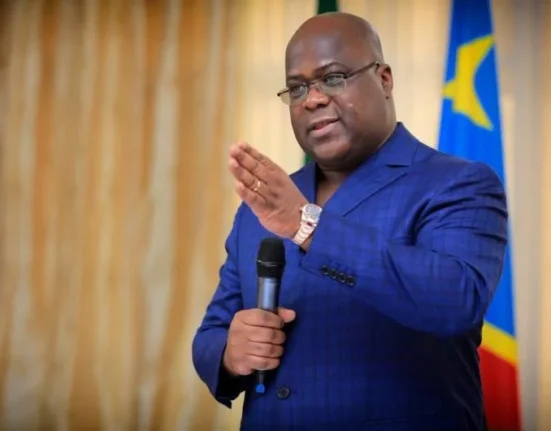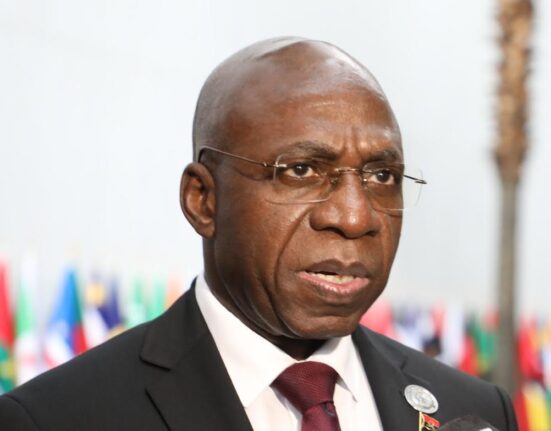CAIRO, September 2025 – Egypt is accelerating reforms in its mining sector, seeking to raise the industry’s contribution to GDP from under 1% today to 6% by 2030. The government is betting on regulatory overhauls, digitalisation, and a more competitive fiscal regime to transform the country into a global investment hub for mineral resources.

AfricaHeadline Reports Team
editorial@africaheadline.com
The measures will take centre stage at the upcoming African Mining Week (AMW), where Petroleum and Mineral Resources Minister Karim Badawi will outline policies reshaping Egypt’s extractive industry. He is also scheduled for a high-profile fireside chat, From Policy to Practice: Implementing Egypt’s Vision for Mineral Beneficiation, aimed at convincing investors that Cairo can bridge policy ambition with practical execution.
A key element of reform is the modernisation of mining services through digital platforms. In June, Egypt launched a pilot Track License Portal, a unified electronic system designed to cut licensing time to a maximum of 20 days. The government plans to expand this into a Digital Mining Platform by 2025, allowing investors streamlined access to geological data, exploration tenders, and license applications.
Officials argue the move will enhance transparency in a sector historically seen as bureaucratic and slow, while aligning Egypt with international benchmarks for ease of doing business.
Legislation passed earlier this year has reshaped the Egyptian Mineral Resources Authority (EMRA) into the independent Mineral Resources and Mining Industries Authority, with expanded financial and managerial autonomy. The restructured body will oversee licensing, attract global partners, and manage infrastructure investments aimed at reducing operational bottlenecks.
Policymakers stress that the changes are designed not only to attract capital but also to ensure sustainable exploitation of Egypt’s diverse mineral wealth. The new regime aims to balance investor appetite with long-term national interests, including community development contributions.
At the heart of Cairo’s strategy is the Model Mining Exploitation Agreement (MMEA), introduced in 2023 to replace profit-sharing deals with a royalty- and tax-based system. The framework offers:
-
a 5% net smelter royalty on revenue,
-
a 22.5% corporate tax rate,
-
a 15% government profit interest, and
-
a 0.5% contribution to community development.
The terms also allow firms to recover up to 50% of investment costs via tax deductions within seven years of project start-up.
The new regime has already drawn interest from majors such as Centamin and Barrick Gold, which have expanded exploration activity under the MMEA. Analysts say the system is a step toward aligning Egypt with international mining norms, where investors favour clarity and predictable tax burdens.
Egypt’s reform drive mirrors a wider continental trend. Ghana, Africa’s largest gold producer, reformed its fiscal regime a decade ago, shifting to a royalty-plus-corporate-tax framework that has since attracted consistent foreign direct investment despite political shifts. The country’s streamlined licensing procedures and clearer investment terms are often cited as a benchmark for balancing investor appeal with fiscal discipline.
Morocco, by contrast, has positioned itself as a hub for phosphate beneficiation and value addition, focusing not only on extraction but also downstream industries such as fertilizers and chemicals. Morocco’s approach demonstrates how linking raw resource exploitation with industrial policy can boost GDP contributions beyond mining alone.
For Egypt, analysts argue that blending Ghana’s regulatory predictability with Morocco’s downstream strategy could accelerate its ambition of raising the mining sector’s share of GDP to 6% by 2030.
With rising global demand for critical minerals and renewed investor interest in Africa, Egypt is positioning itself as a gateway market. Success, however, will hinge on whether digital platforms can deliver the promised efficiency and whether EMRA’s enhanced autonomy translates into faster project approvals.
For Cairo, the stakes are high: a reformed mining industry could become a pillar of economic diversification, easing reliance on hydrocarbons and tourism, and creating new streams of foreign exchange at a time when Egypt faces rising fiscal pressures and debt obligations.








